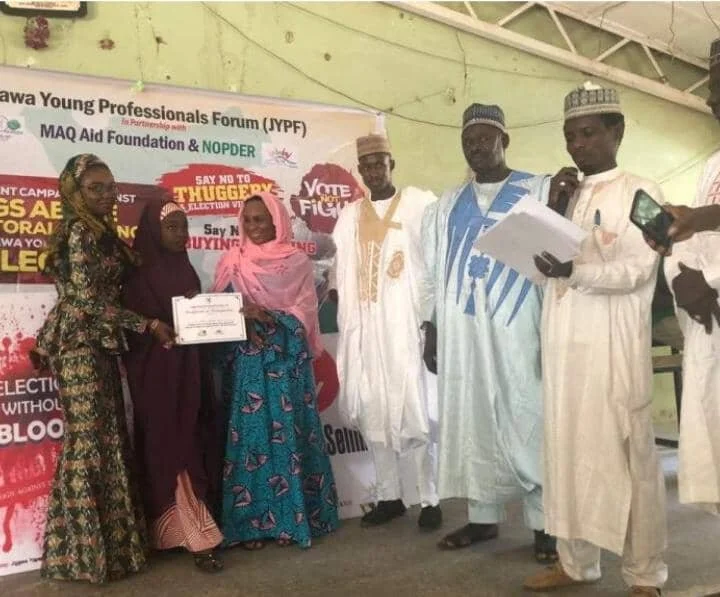It’s Invisible, But Devastating: Mental Illness In Nigeria
“It feels like your life has fallen apart and you are caught up in a whirlwind,” Rukayya Ibrahim says, recalling the loss of her parents years ago to cancer.
“You do eventually get your feet back on the ground,” Rukayya adds. “Though the pain doesn’t go away, you learn how to accept it, to channel it and to use it as a way of cherishing the people you’ve lost.”
Rukayya, a 2019 Mandela Washington Fellow and founder of the MAQ Foundation for Substance Abuse and Mental Health Awareness, is working to educate her peers in Nigeria about the breadth and depth of mental health.
In fact, it is estimated that 5.4% of the population in the African region suffers from a depressive disorder and just over 3%, an anxiety disorder, according to a 2017 study by the World Health Organization (PDF, 1.7MB).
In her work addressing attitudes and behavior, Rukayya has found especially challenging the long-standing stigma that exists in Nigeria and the wider region, wherein mental health issues are seen — in some cases — as spiritual in origin.
“There is a widely held misconception that supernatural forces, witches or evil spirits cause mental illness,” Rukayya says. “Historically, people with mental illnesses were burned, hanged or mutilated — all in a bid to save their souls.”
To address this, Rukayya is working to educate her peers about the emotional intricacy of illnesses such as anxiety that are unseen and, as she explains, unnoticed.
“No one understands because it is invisible, but it is devastating,” Rukayya says. “They think it’s a feeling of worry with a direct root cause. They think that if you fix the root cause, you won’t feel anxious anymore.
“But that’s not how it feels to me. It’s messy and unpredictable,” Rukayya adds. “At times, it can be so debilitating that I’m unable to speak or think clearly.”
By sharing her story, Rukayya is bringing to bear the complexity of mental health and modeling the kind of empathy she wishes to see from her peers.
“You have to be patient; don’t tire of educating people and of answering their questions,” Rukayya says.
To this, she adds that mental health advocates suffering from anxiety or depression should take care of themselves before attempting to change others’ minds.
“You can’t give what you don’t have,” Rukayya says. “Work to find love and peace within so you can share it with others.”
For Rukayya, there is no such thing as a perfect world, but, rather, a series of near-perfect fragments melded together over a lifetime.
“Even in this imperfect world, there is always something to be happy about, and, in those moments, the world is perfect.”
The views and opinions expressed here belong to the interviewee and do not necessarily reflect those of The Youth Cafe.


